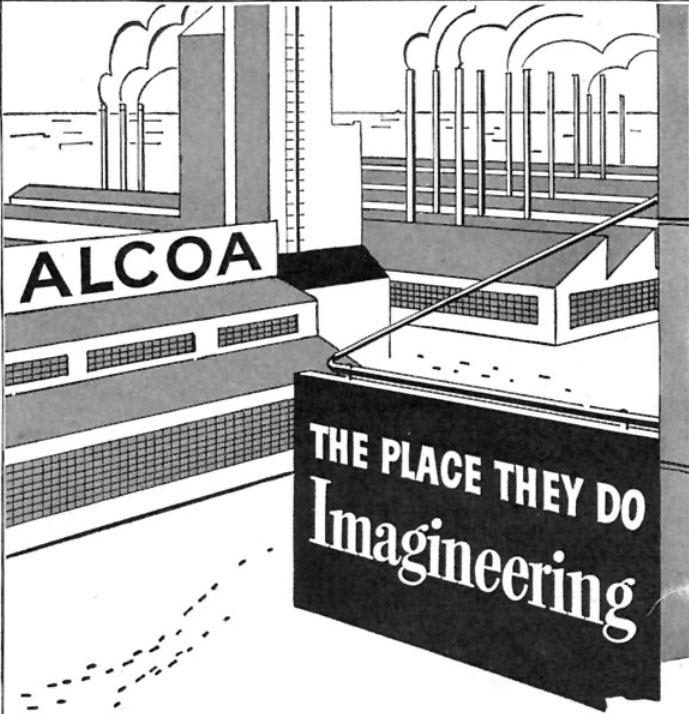The Discovery of Antibiotics Antibiotics have been a cornerstone in the advancement of medicine and public health, fundamentally altering the treatment and management of bacterial infections. The journey of antibiotics began in 1928 with Alexander Fleming, a Scottish bacteriologist known for his keen observational skills. The discovery of penicillin was largely serendipitous. Fleming, while working…
Read More
Introduction to Solar Panels and Renewable Energy Solar panels, an essential component of renewable energy technology, have undergone significant advancements since their inception. They serve as a pivotal tool in reducing global dependence on fossil fuels. The development of solar panels is a vital part of the broader movement toward sustainable energy solutions. History and…
Read More
The Early Beginnings: Morse Code and Telegraphy The history of radio traces its origins back to the mid-19th century, a period characterized by its reliance on visual and auditory signals for long-distance communication. The era was marked by groundbreaking innovations, notably the invention of the telegraph by Samuel Morse in the 1830s. The telegraph system…
Read More
The Emergence of the Telegraph The advent of the telegraph transformed the landscape of communication in the 19th century, acting as a catalyst for the Industrial Revolution. Prior to the telegraph, long-distance communication was slow and unreliable, relying heavily on postal services and transportation networks which could be interrupted by various factors such as weather…
Read More
The First Successful Heart Transplant The procedure of the first successful human heart transplant stands as a pivotal moment in the annals of medical history, revolutionizing the approach to treating terminal heart illness. Led by Dr. Christiaan Barnard, a pioneering cardiac surgeon, this landmark event took place on December 3, 1967, at Groote Schuur Hospital…
Read More
The Early Days: Black-and-White Television The journey of television is a fascinating tale that traces its origins to the early 20th century, with the introduction of black-and-white sets. This era saw visionary inventors like John Logie Baird and Philo Farnsworth laying the groundwork for an innovation that would transform global communication. Between the late 1920s…
Read More
Early Development of GPS The development of the Global Positioning System (GPS) is a testament to the power of technology and innovation driven by strategic needs. Initiated in the 1960s by the United States Department of Defense, the GPS project represented a groundbreaking shift in navigation capabilities. Initially envisioned for its significant military potential, the…
Read More
The Genesis of Electric Cars The history of electric vehicles (EVs) can be traced back much further than many might initially expect. Though electric cars may feel like a relatively modern innovation, their genesis dates back to the 19th century. During the early 1800s, inventors across Europe and America began tinkering with the idea of…
Read More
The Historical Context of Indoor Plumbing Indoor plumbing, as a modern convenience, is often taken for granted; however, it represents a pivotal shift in human history, transforming the way we live and addressing major public health issues. To fully appreciate this advancement, it is important to consider the state of sanitation and hygiene before indoor…
Read More
The Origins of Skyscrapers The evolution of skyscrapers in the late 19th and early 20th centuries marks a pivotal chapter in the history of urban architecture. These towering structures, characterized by a steel framework capable of supporting numerous floors, represented a significant departure from the traditional architectural designs reliant on load-bearing walls. Before the advent…
Read More
What is Imagineering
A portmanteau of “imagination” and “engineering”, the term imagineering denotes creative engineering – turning creative ideas into practical reality.
The term was coined by the Alcoa Corporation around 1940, and later rose to fame through Walt Disney Imagineering, the design and development arm of The Walt Disney Company responsible for the creation of Disney´s theme parks.
Origins and prevalence
Today, the term imagineering is strongly associated with the Walt Disney Company, and Disney Enterprises even trademarked the word in 1990. It is, however, not a word invented by Disney. The earliest known use of the term is from around 1940, when the Alcoa Company began including it in their advertising. From there, it spread, and it appeared in numerous print publications throughout the rest of the 20th century, in texts pertaining to a wide range of different disciplines, including futures studies, urban design, evolutionary economics, geography, politics, and corporate culture.
Alcoa
Alcoa (an acronym for Aluminum Company of America) is an aluminium producer with roots going back to the 1880s. Today, it is the world's eighth-largest producer of aluminum, and conducts operations in ten different countries. During World War II, Alcoa created in international “Imagingeering” program to encourage innovative uses of aluminium.
This is an ad published in Time magazine on February 16, 1942:

“For a long time we've sought a word to describe what we all work at hard here at Alcoa (...) IMAGINEERING is the word (...) Imagineering is letting your imagination soar, and then engineering it down to earth.”
Other examples
-
In 1942, the October 24 issue of The New York Times included an article titled “Christian Imagineering”.
-
A 1944 Oxford English Dictionary entry cites an advertisment in the Wall Street Journal where the word is included.
-
The artist Arthur Radebaugh used the term to describe his own work, according to the article “Black Light Magic” published in the Portsmouth Times, Ohio, 1947.
-
In 1957, an article written by Richard F. Sailer for the National Carbon Company Management Magazine was published with the headline "BRAINSTORMING IS IMAGINation enginEERING". It was later reprinted by the Union Carbide Company.
-
In 1967, WED Entrprised applied for a trademark for the term.
-
In 1981, Serge King´s book “ Imagineering for Health: Self-Healing Through the Use of the Mind” was published by Quest Books.
What is the Imagineering Foundation?
Founded in 1999, the Imagineering Foundation is an educational charity organization that encourages school children aged 8-16 to engage with engineering and the STEM subjects. The Imagineering Foundation organizes around 150 engineering clubs for children, and in an average week circa, 1 800 children take part in the clubs. Most of the Imagineering clubs are in England, but there are also some in Scotland and Wales.
The Imagineering Foundation was established in England by a group of Midlands engineers and is based in Kenilworth, Warwickshire. In addition to their offline activities, the Imagineering Foundation has created a website where teachers and tutors can access project material, and the organization is also publishing a magazine called The Imagineer.
The organization hosts children's engineering fairs at the Royal International Air Tattoo at RAF Fairford, at the Royal Bath and West Show, and the International Air Day at RNAS Yeovilton.
Is the video game developer Imagineering still active?
No, it was folded into Absolute Entertainment in 1992, and Absolute Entertainment went bankrupt in 1995.
Imagineering was established in New Jersey in 1986 an in-house studio of Absolute Entertainment. Examples of video games they developed for Absolute Entertainment are Battle Tank, Super Battletank, A Boy and His Blob: Trouble on Blobolonia, and The Rescue of Princess Blobette. They also developed games for several third-party publishers, including the Atari Corporation and Activision.
Is the Forex broker Imagine FX still active?
No. The Forex broker Imagine FX has closed down and in no longer in business. They were unregulated and closed down after allegedly scamming a large number of clients. Imagine FX is a good example of why traders should always choose a regulated Forex broker that is regulated by a trusted regulatory body. Click the link to find a list of regulated brokers that is a better alternative than Imagine FX.
Is the magazine ImagineFX still available?
Yes. The magazine ImagineFX is still being published in the UK.
Is the computer company Imagineering Australia still in business?
No, it was sold to First Pacific in 1990 and then merged with Tech Pacific under the Tech Pacific banner. In 2005, Tech Pacific merged with Ingram Micro. Ingram Micro is still active.












